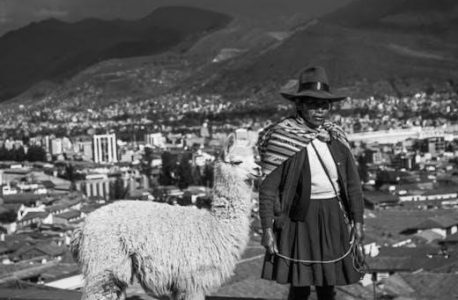Roxanne Dunbar-Ortiz’s groundbreaking book reimagines U.S. history from Indigenous perspectives, exposing settler colonialism’s impact and celebrating Native resistance and resilience.

1.1 Overview of the Book and Its Significance
Roxanne Dunbar-Ortiz’s An Indigenous Peoples’ History of the United States challenges traditional narratives by centering Indigenous voices. It explores the history of settler colonialism, resistance, and survival, offering a comprehensive account of Native American experiences. The book critiques U.S. policies and myths, providing a powerful alternative history that highlights Indigenous resilience and the ongoing struggle for justice and self-determination.
1.2 Author Roxanne Dunbar-Ortiz and Her Contributions
Roxanne Dunbar-Ortiz, a renowned historian and activist, challenges traditional U.S. history narratives in An Indigenous Peoples’ History of the United States. Her work emphasizes settler colonialism and Indigenous resistance, offering a critical perspective on American identity. Dunbar-Ortiz’s contributions bridge academia and activism, providing essential insights into Native American struggles and resilience, reshaping historical understanding and advocating for justice and equality.
Historical Context of Indigenous Peoples in the United States
Indigenous peoples inhabited the Americas for millennia before European colonization, thriving in diverse cultures. Their histories were profoundly disrupted by colonization, displacement, and genocide, shaping their resilience and resistance.
2.1 Pre-Columbian Indigenous Cultures and Societies
Pre-Columbian Indigenous cultures flourished across the Americas, with diverse societies, sophisticated agriculture, and complex governance systems. These communities thrived for millennia, developing advanced architectural and agricultural practices; The Three Sisters farming method and the earthen mounds of the Eastern Woodlands exemplify their ingenuity. Rich cultural traditions, oral histories, and spiritual practices were central to their identities. These societies were deeply connected to their lands, fostering vibrant trade networks and social structures that sustained thriving populations before European colonization disrupted their way of life.
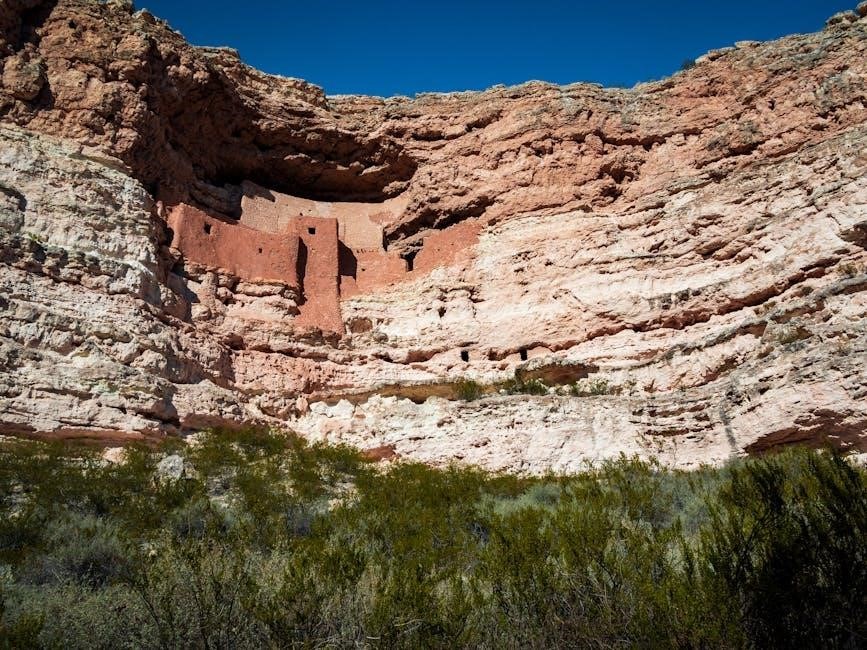
2.2 The Impact of European Colonization
European colonization brought devastating consequences for Indigenous peoples, including displacement, genocide, and cultural erasure. The introduction of diseases decimated populations, while forced relocation and violence disrupted traditional ways of life. Colonizers exploited resources and imposed foreign systems of governance, leading to the loss of land and sovereignty. This period marked the beginning of a long history of resistance as Indigenous communities fought to preserve their identities and territories against overwhelming odds.
Key Themes and Concepts in the Book
Highlighting settler-colonialism, resistance, and genocide, the book challenges U.S. historical narratives, offering a powerful Indigenous perspective that debunks the myth of American exceptionalism and expansionism.
3.1 Settler-Colonialism and Its Role in U.S. History
Roxanne Dunbar-Ortiz examines settler-colonialism as a framework for understanding U.S. history, emphasizing its role in displacing Indigenous peoples. The book highlights how the founding of the United States was rooted in the violent seizure of Native lands, perpetuating genocide and cultural erasure. This perspective challenges traditional narratives, framing U.S. expansion as a form of colonialism rather than a benign spread of democracy. The enduring impact of settler-colonialism on Indigenous communities is a central theme.
3.2 Resistance and Resilience of Indigenous Peoples
Indigenous peoples have consistently resisted U.S. colonial expansion, employing diverse strategies from armed resistance to legal and cultural preservation. The book underscores their resilience, highlighting acts of defiance, alliances, and adaptive survival. Despite centuries of oppression, Indigenous communities have maintained their identities, lands, and sovereignty, exemplifying enduring strength and a steadfast commitment to their rights and ways of life.

The Role of U.S. Policies Toward Indigenous Peoples

U.S. policies toward Indigenous Peoples historically served as tools of control and displacement, leading to land loss, cultural suppression, and enduring societal impacts.
4.1 The Indian Removal Act and Its Consequences
The Indian Removal Act of 1830 forcibly relocated Indigenous Peoples, leading to the Trail of Tears and widespread suffering. It caused immense death, cultural erasure, and land loss, deeply impacting Indigenous communities and their sovereignty. This policy exemplifies the U.S. government’s colonialist approach, prioritizing expansion over Indigenous rights and livelihoods. Its legacy continues to affect Indigenous Peoples today, highlighting systemic oppression and resistance.
4.2 Assimilation Policies and Their Effects
Assimilation policies, such as boarding schools and land allotment, aimed to erase Indigenous cultures and identities. These measures forced Indigenous children into Western education, suppressing their languages and traditions. The Dawes Act fragmented tribal lands, undermining sovereignty. Such policies caused profound cultural loss, intergenerational trauma, and economic hardship. They reflect the U.S. government’s efforts to assimilate Indigenous Peoples into white American society, often through coercive and destructive means.
Indigenous Peoples’ Struggles for Rights and Recognition
Indigenous Peoples have fought tirelessly for land rights, self-determination, and cultural preservation. Their efforts challenge historical injustices, seeking recognition and equity in a society shaped by colonialism.
5.1 Land Rights and Self-Determination
Land rights are central to Indigenous sovereignty, as ancestral territories hold cultural, spiritual, and economic significance. Historically, U.S. policies like the Indian Removal Act forcibly displaced Native peoples, eroding their autonomy. Dunbar-Ortiz highlights how Indigenous nations have resisted such injustices, advocating for self-determination and the restoration of stolen lands. Modern activism continues this fight, emphasizing the importance of legal recognition and equitable land management to ensure Indigenous communities’ survival and thriving futures.
5.2 Modern Activism and Advocacy
Modern Indigenous activism continues the legacy of resistance, addressing contemporary issues like environmental justice and cultural preservation. Movements such as the Dakota Access Pipeline protests demonstrate the power of collective action. Dunbar-Ortiz’s work underscores how today’s advocates are redefining Indigenous rights, challenging historical narratives, and pushing for policy changes that honor sovereignty and justice. Their efforts aim to reclaim and protect Indigenous identities and territories for future generations.
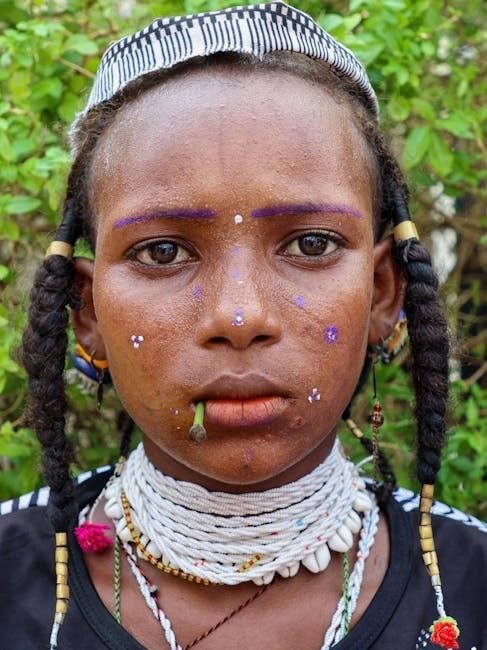
The Book’s Reception and Impact
Roxanne Dunbar-Ortiz’s work has received critical acclaim, earning awards and sparking conversations about Indigenous histories. Its adoption in schools challenges traditional narratives, amplifying Native voices and perspectives.
6.1 Critical Acclaim and Awards
Roxanne Dunbar-Ortiz’s An Indigenous Peoples’ History of the United States has garnered widespread critical acclaim, earning numerous awards and recognition. The book has been praised for its groundbreaking narrative, challenging traditional U.S. history and shedding light on Indigenous struggles. It has received accolades from academic circles and social justice communities alike, solidifying its place as a seminal work in redefining American historical consciousness. Its impact continues to grow, inspiring new generations of scholars and activists. The book’s success underscores the urgency of Indigenous voices in historical discourse, making it a landmark publication in contemporary American studies.
6.2 Educational Significance and Adoption
An Indigenous Peoples’ History of the United States has become a transformative educational tool, challenging traditional narratives in classrooms nationwide. Its adoption in curriculums reflects a growing demand for decolonized education. The book’s accessible yet profound analysis has made it a cornerstone for teaching critical perspectives on U.S. history, fostering empathy and understanding among students. Its integration into syllabi across disciplines underscores its relevance in reshaping educational frameworks and encouraging inclusive learning environments.
Comparisons with Traditional U.S. History Narratives
Roxanne Dunbar-Ortiz’s work challenges traditional U.S. histories by exposing settler colonialism and Indigenous resistance, offering a counter-narrative to the often glorified accounts of American expansion and progress.
7.1 Challenging the Founding Myths
Roxanne Dunbar-Ortiz’s work challenges the traditional founding myths of the United States, which often glorify freedom and democracy while ignoring the violent displacement and genocide of Indigenous peoples. She exposes the flawed narrative of American exceptionalism, revealing how the nation’s expansion was built on settler colonialism, land theft, and cultural erasure. By centering Indigenous voices, the book dismantles the illusion of a benevolent U.S; history, offering a more truthful and inclusive account of the past.
7.2 Revisiting the Concept of American Exceptionalism
Roxanne Dunbar-Ortiz’s work challenges the notion of American exceptionalism, which portrays the U.S. as a uniquely moral and democratic nation. She reveals how this ideology has justified violence, displacement, and genocide against Indigenous peoples, masking the brutal realities of settler colonialism. By exposing these truths, the book dismantles the myth of U.S. superiority, offering a critical reexamination of the nation’s founding principles and their ongoing impact on Indigenous communities.
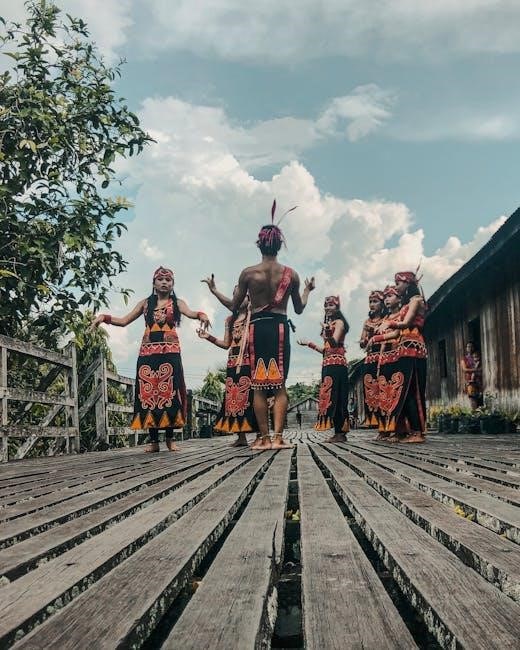
The Importance of Indigenous Perspectives
Indigenous perspectives are crucial for decolonizing education and promoting cultural awareness, offering a truthful narrative of history and fostering understanding of Native communities’ struggles and contributions.
8.1 Decolonizing History and Education
Roxanne Dunbar-Ortiz’s work challenges traditional narratives by reframing U.S. history through Indigenous voices, emphasizing settler colonialism’s role and resisting historical erasure. This approach decolonizes education by centering Native perspectives, fostering a deeper understanding of land rights and self-determination. By integrating Indigenous histories, the book reshapes curricula, encouraging critical thinking about colonialism’s legacy and promoting empathy for Indigenous struggles. It serves as a vital tool for reclaiming and honoring Indigenous knowledge.
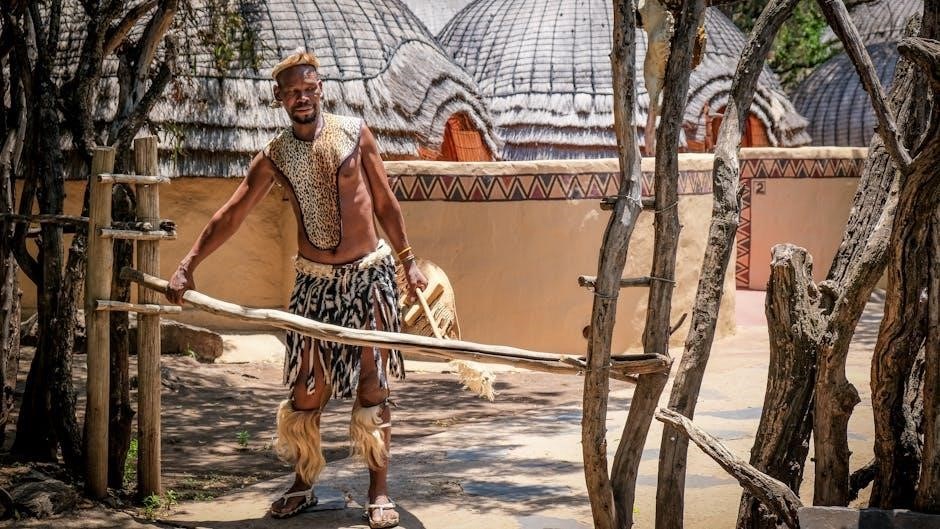
8.2 Promoting Cultural Awareness and Understanding
Roxanne Dunbar-Ortiz’s work fosters cultural awareness by sharing Indigenous histories, traditions, and struggles, challenging stereotypes and misconceptions. By centering Native voices, the book humanizes Indigenous peoples, revealing their rich cultural diversity. This promotes empathy and understanding, encouraging readers to appreciate the resilience and contributions of Indigenous communities. Such cultural awareness is vital for building a more inclusive and equitable society that values Indigenous knowledge and experiences.
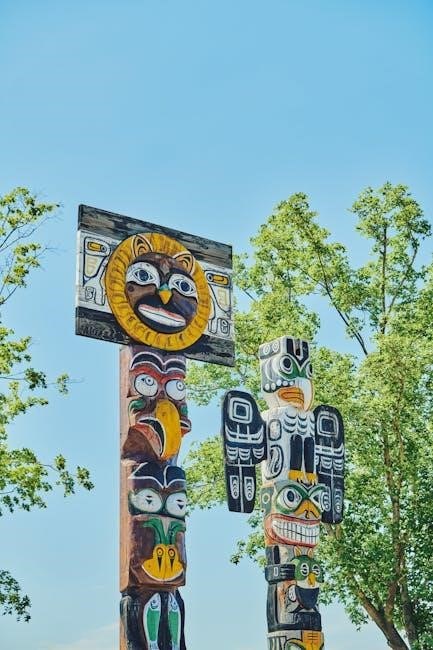
The Book’s Influence on Contemporary Issues
Roxanne Dunbar-Ortiz’s book reshapes contemporary discussions on colonialism, inspiring movements like Indigenous Peoples’ Day and fueling ongoing struggles for Native rights and environmental justice.
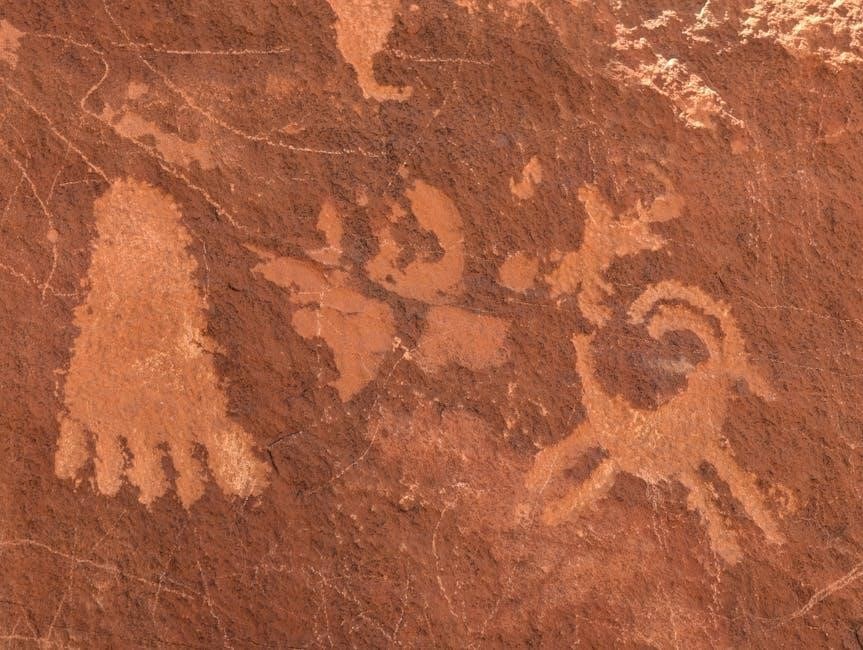
9.1 Indigenous Peoples’ Day and Its Growing Recognition
Roxanne Dunbar-Ortiz’s work has significantly influenced the growing recognition of Indigenous Peoples’ Day, challenging traditional Columbus Day narratives. Her book highlights the histories and struggles of Native Americans, resonating with movements advocating for Indigenous rights. As cities and states adopt this day, it reflects a broader cultural shift toward acknowledging Indigenous perspectives and contributions, fostering greater awareness and solidarity across the U.S.
9.2 Current Struggles for Indigenous Rights
Indigenous communities continue to face land dispossession, environmental threats, and systemic discrimination. Roxanne Dunbar-Ortiz’s work underscores ongoing resistance, from legal battles over sovereignty to grassroots activism. Modern struggles echo historical injustices, highlighting the need for decolonization and self-determination. These efforts aim to reclaim cultural identity and ensure equitable treatment, aligning with global movements for Indigenous rights and environmental justice, as detailed in her comprehensive analysis.
Roxanne Dunbar-Ortiz’s work reframes U.S. history, emphasizing Indigenous resistance and the ongoing fight for justice, offering a powerful narrative for education and societal change.
10.1 The Legacy of “An Indigenous Peoples’ History of the United States”
Roxanne Dunbar-Ortiz’s book has reshaped historical narratives, challenging traditional perspectives and offering a powerful Indigenous lens on U.S. history. Its legacy lies in its ability to educate and inspire, fostering a deeper understanding of colonialism’s impact and Indigenous resistance. Widely acclaimed, it has become a vital resource for decolonizing education and advocating for Indigenous rights, leaving a lasting impact on historical discourse and contemporary activism.
10.2 The Ongoing Fight for Justice and Equality
The book underscores the continued struggle for Indigenous justice, highlighting land rights, self-determination, and cultural preservation. By exposing historical and systemic injustices, it fuels contemporary activism, inspiring efforts to address ongoing disparities and advocate for equitable policies. The fight for Indigenous equality remains a vital cause, propelled by resilience and the determination to reclaim and honor Native identities and sovereignty.
Further Reading and Resources
Explore related works like The Indigenous Peoples’ History of the United States for Young People and Roxanne Dunbar-Ortiz’s other writings. Online archives and educational materials from reputable sources like Beacon Press and ResearchGate offer additional insights and academic perspectives.
- Beacon Press
- ResearchGate
11.1 Related Books and Academic Sources
For deeper exploration, readers can access Roxanne Dunbar-Ortiz’s The Indigenous Peoples’ History of the United States for Young People and her other scholarly works. Academic sources like Federal Anti-Indian Law by Peter d’Errico and historical archives from platforms such as ResearchGate provide complementary insights. Additionally, online libraries and educational websites offer downloadable PDFs and critical analyses of Dunbar-Ortiz’s work.
- The Indigenous Peoples’ History of the United States for Young People
- ResearchGate Articles
- Beacon Press Publications
11.2 Online Archives and Educational Materials
Online archives like ResearchGate and annas-archive.org offer PDF versions of Roxanne Dunbar-Ortiz’s work for academic access. Educational materials, including teaching guides and web quests, are available through platforms like Beacon Press and the Internet Archive, supporting classroom integration of the book.
- ResearchGate
- Anna’s Archive
- Beacon Press Educational Resources

